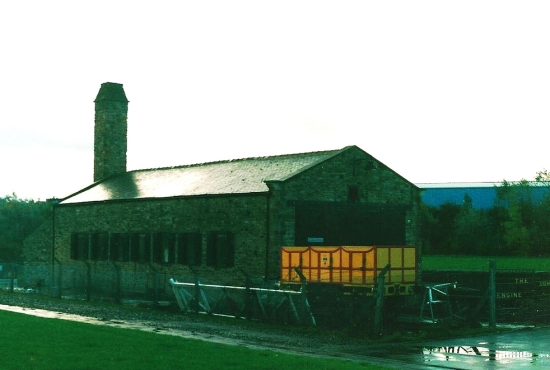Work has started on a £82m project to return train making to the birthplace of the railways.

The workshop of the Stockton and Darlington Railway which opened in 1825
Hitachi Rail Europe eventually plans to deliver more than 860 carriages from its new plant at Newton Aycliffe, County Durham — less than 10 miles from the 1825 route of the world’s first passenger railway.
The factory will create 730 jobs when production begins in three years’ time with an initial batch of Japanese-built carriages arriving in 2015 for testing and evaluation. The first 122 trains to be built at the plant will be used to revamp Britain’s 40-year-old high-speed train fleet. All the Class 800 series trains have been assigned to the East Coast Main Line and the Great Western Main Line as part of the Government’s Intercity Express Programme.
The train maker has admitted it was influenced by the experience of fellow Japanese investor Nissan — which operates Britain’s biggest car plant at nearby Sunderland — before deciding to commit to the North-East.
“We talked to Nissan about what works, about the workforce and relationships with unions,” explained Hitachi Europe’s executive chairman and chief executive, Alistair Dormer.
“It was hugely beneficial. Nissan spoke very highly of the region and their plant is up there with the best in the world,” he added. “If we can get anywhere near close to that in railways, then we will have done a great job.”
The Department for Business, Innovation and Skills has invested £4m in the project under the Grant for Business Investment scheme.
“I don’t want the North-East to just have an industrial heritage. I want it to have an industrial future,” said Transport Secretary Patrick McLoughlin on a recent visit to the site.
Hitachi Rail Europe is working with Merchant Place Developments to build and fit out the plant, which covers an area bigger than six football pitches, with the fabrication contract going to Darlington-based Shepherd Construction.
When complete the 43,000sq metre Merchant Park factory will be the biggest development in County Durham for more than 20 years.
“Shepherd has invested a vast amount of time and research carefully gathering insight into Hitachi’s specific requirements before proposing exactly how we would deliver such a large and complex scheme,” explained Mark Perkins, the firm’s chief executive.
“That meant a comprehensive understanding of what the facility has to achieve and, of course, Hitachi’s exceptional standards in building trains.”
As well as creating 150 building jobs there will be other immediate benefits. Shepherd insists on hiring at least 90 per cent of its sub-contractors from within 50 miles of any of its sites.
“This is what we do,” added Perkins. “Shepherd is not a business that finishes a job and then jets back to London. We are committed the North-East.”
Once train making starts in 2016, other job securing spin-offs include long-term contracts for Romag, in Leadgate, County Durham, which makes and repairs train windows; Nomad Digital, of Newcastle, which designs and makes driver reminder safety switches, and Gateshead-based Petards, which produces passenger counting equipment.